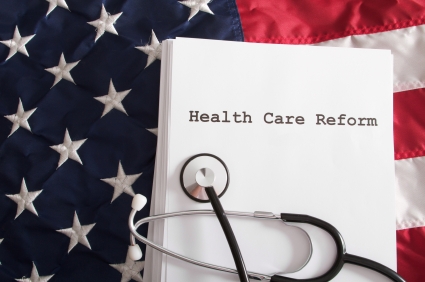- The MLR requirement will go away — but some of the states will miss it and might pass legislation to reinstate it on their own with perhaps even tighter restrictions. Will commissions on individual climb back up to the levels they were before the Patient Protection and Affordable Care Act was signed into law? Probably, but I wouldn't be surprised to see carriers take a little while to increase them.
- The federal funding and rules for exchanges go away — but states are already developing them. Do they stop midstream and throw out what has already been built? Or do they stay the course and continue building them (keep in mind that Utah and Massachusetts already have exchanges up and running). It's hard for me to believe that exchange development for all states will be stopped wholesale if the Patient Protection and Affordable Care Act goes away entirely. My bet is that some states will continue to build their exchanges albeit with an emphasis on the individual market and less on small group.
- Will healthcare delivery costs go up or down if the Patient Protection and Affordable Care Act goes away? Delivery costs are always trending up but if the law is overturned, the rate of increase is likely to slow due to providers not needing to cost shift as much as they are now due to higher populations of Medicaid patients and cuts to Medicare.
- Agents and the industry can breathe a sigh of relief — maybe. For about a month or two. The Patient Protection and Affordable Care Act relieved a lot of pressure on the states to do something about escalating healthcare costs and the growing populations of uninsureds. If the Patient Protection and Affordable Care Act goes away, states will feel more compelled to act on their own. America's healthcare system has been broken for some time. That's why Congress acted and created the Patient Protection and Affordable Care Act. Unfortunately, the law is bending the healthcare cost curve up and is making things worse. But if the Patient Protection and Affordable Care Act goes away, we're still left with a broken system that is rapidly becoming a black hole in our economy. Healthcare eats up 16% of our GDP. In 40 years, at the current rate of growth, it will account for 40% of our GDP. How are we going to pay for it? The Patient Protection and Affordable Care Act's demise would lead to a short term sigh of relief for many but the problems that we've had before and after March, 2010 will continue to haunt lawmakers, business, agents and our industry until they are tackled in a meaningful way.
Healthcare Reform and the Courts, Part 3
Understanding the details of the Patient Protection and Affordable Care Act, its legal challenges and what this all really means to our industry and, most importantly, the American public is fundamental in empowering them to look in the right direction for answers to a complicated question that is facing all of us — who is going to treat us when we need medical care and how are we going to pay for it?|








